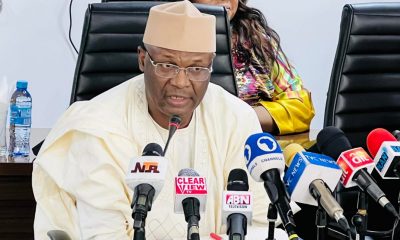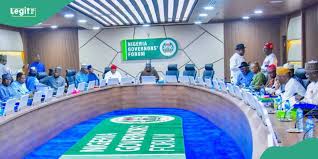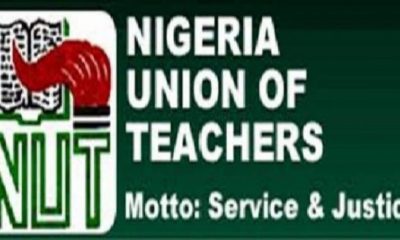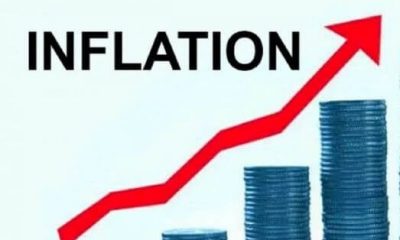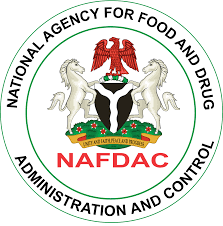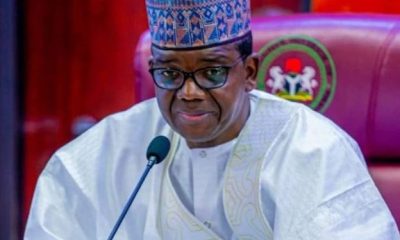Faith
COVID-19: FG Cautions Governors on Congregation Prayers

By Mathew Dafiya, Abuja
The Federal Government has exhorted state governors to rethink their decision on lifting the ban on congregational prayers atworship centres reminiding them that the coronavirus pandemic in the country has not been stemmed.
The Secretary to the Government of the Federation (SGF) and Chairman of the Presidential Task Force (PTF) on COVID-19, Mr Boss Mustapha, gave the advised at the national daily briefing of the PTF.
The PTF, while reacting to Kano State governor, Abdullahi Ganduje who announced lifting of the ban on congregational and ‘Eid’ prayers, insisted that congregants must continue to obey the physical distancing rule.
The governor’s directive came moments after the SGF announced President Muhammadu Buhari’s extension of the lockdown in Kano by additional two weeks.
The SGF said “I’m particular about Congregational gatherings. Large gatherings will exposed even the 20 percent that we want to protect. We want our sub nationals government to really reconsider their decisions on allowing large gatherings to take place until when we have been fully prepared and we can adjudged that the moment has come for that to be allowed.”
Mustapha, who shared the stories of people he knows who have lost their lives to COVID-19 on Thursday, said: “I have seen the ravage that has come upon our land.
“I will make it a little bit personal for me. I’ve lost a colleague in this process. All the five working days on the week preceding Mallam Abba Kyari, the late Chief of Staff to the president being positive for COVID-19. For the five working days, we sat beside each other in four of those working days except for the Thursday that he went to Kogi for condolence over the loss of the mother of the governor.
“I shared official functions with him. We sat beside each other for the four of the five working days. Some of my colleagues had meetings with him on Saturday and Sunday within the same week. But unfortunately, he lost the battle against COVID-1
“I can see the face of a chief judge of a state who was my classmate in ABU when we went as young lads to study law in 1976, that is almost 40 something years ago. I can see those faces, I can see the ravage that has come upon our land. And I know you can identify with a lot of people out there.
“So my message to you today is that we have a collective responsibility to walk together in honest realizing that each and every one of us has a part to play in this Enterprise so that we can force this virus and limit its spread.”
The SGF said in the virtual meeting of the National Economic Council with Vice President and all the State Governors on Thursday, the issue of alignment of their state level actions with the guidelines issued was emphasized.
”Similarly emphasized is the need for states to diligently implement and enforce compliance. Particularly, I underscored the need for the Governors to provide personal and strong leadership, carry the policy of community ownership to the grass roots and create deeper awareness.
“The Governors were also advised on the decision taken by some of their colleagues to permit large gatherings as such decisions could inadvertently endanger the elderly, the sick and those with underlying factors during such gatherings. The strong advisory from the PTF is that large gatherings beyond twenty persons remains prohibited and should be adhered to, ” the task force chairman said.
Also reacting, PTF National Coordinator, Dr Sani Aliyu, said that governors would henceforth own the response as the Centre will not continue to drive the process.
”The continuous measures that we advise, always take into cognizance the social, economic, religious, cultural implications of these measures. In addition to that, we know that the effectiveness of the measures really depends on the acceptability, the owning by the communities. Whenever the PTF puts out guidelines, it is never done in isolation to state governments. We always tell them in advance what the likely recommendations will be, if we get approval from Mr. President we go back to them and tell them what part of their recommendations have been agreed on or not.
“We will continue to work with the state governments to make sure that whatever is put in place is in the best interest of their citizens.
“We are in the business of saving lives. When it comes to restrictions, I will like to give you an example. Saudi Arabia for instance, I’m sure you are aware, they had about 240 deaths, they have had over 40,000 infections. So, their case fatality rate is much more lower than Nigeria. But what have they done? They are planning to actually lockdown the country, 24 hours lockdown for five days during the period of the eid. Have we had any umrah this year? No. Are we likely to have hajj? We probably wouldn’t. So we are living in an usual situations, we are living in an usual times. As far as we are concern, the role of government is to protect the lives of the citizens and ensure their well being.
“In this regard, we will continue to work with the state governors but we are also pushing towards a different approach on the next phase of the pandemic. We going to insist on state governors starting to take ownership of the response. We will support them in making decisions, we will provide them with the best guidance based on the data available, but we will not continue to drive this response centrally from the federal side. We expect state governments to have their capacity to be able to implement those measures required to safeguard the lives of the people.
“So, in this regard, as far as we are concerned state government will continue to have their responsibility as we go forward. But we hope that we will be able to work very closely and make use of science and also considered the different social cultural and religious aspects of those communities when we enforce the guidelines, ” the national coordinator said.
On public holidays, the PTF Director said: “As we go into Sallah and any other public holiday period, where people congregate, where people visit each other, in a pandemic situation where the pandemic is clearly going into the exponential phase, not only is it risky, it is unwise for you to go into large groups of people without any protection, with no face masks, without respecting physical distancing, putting aside all the mass gatherings, you are asking for trouble. And that trouble will not come immediately, it will come in the following weeks, two, three when that large congregation of people end up being infected. And in the long run, do you want to be alive for the next Selah or do you want to enjoy this Selah, especially if you are at risk and possibly not be around for next year. Is it going to be one Big Bang and then you are gone? Or do you want to delay things considering the usual circumstances we are in and continue to enjoy future Selahs with your loved ones. So I will keep it at that for now.”
The SGF also warned on self-medication, adding that it is fraught with the danger of increasing risks of avoidable casualties.
“Through the surveillance system set up by the PTF, we have received reports that Nigerians have been purchasing Hydrxoychloroquine in large quantities. We wish to reiterate that this drug has not being certified for use in treating COVID-19 in Nigeria by the relevant health and pharmaceutical authorities. Self-medication of any kind, is fraught with the danger of increasing risks of avoidable casualties.
“We, therefore strongly warn against self-medication. If you are sick, please seek medical advice and if you are confirmed positive, kindly self-isolate in an approved facility. The COVID-19 is highly infectious and dangerous, he said.”
Mustapha also apologized to essential workers for the harassment faced in the course of the discharge of their duties from security agencies.
“For sometimes now, the PTF has consistently answered questions and provided explanations on the categories of persons and services exempted from some aspects of these guidelines particularly as it relates to restrictions on inter- state movement and curfew. For the avoidance of doubt, essential workers including our indefatigable medical personnel, diligent journalists, courageous fire service personnel, telecommunications workers, are all exempted.
“The Inspector General of Police has further clarified the categories of essential workers in alignment with the guidelines and has issued instructions to security agents to work on the approved exemptions. With this clarification, we sincerely hope that the persistent complaints of harassment by these categories of essential workers, especially medical personnel and journalists would be put to rest so that we can harmoniously work in battling this pandemic.”
The PTF COVID-19 urged all essential workers to go about their legitimate businesses carrying with them valid means of identification and to exercise courtesy in approaching security personnel.
Faith
Niger Coup: CAN States Position on Military Intervention
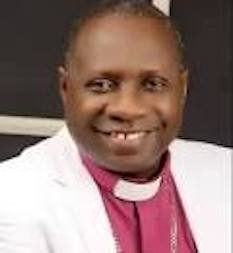
….Position on Military Intervention
Laide Akinboade, Abuja
The Christian Association of Nigeria (CAN) has urged the Economic Community Of West Africa States (ECOWAS) not to use military intervention to resolve the current crisis in Niger.
In a recent statement signed by the CAN President, Archbishop Daniel Okoh, the apex Christian association commended President Ahmed Tinubu, and other heads of ECOWAS for their unwavering commitment to discouraging coups d’état and the forceful takeover of power.
“We also applaud their commendable efforts in resolving the crisis currently faced by our neighbours in the Republic of Niger.
“CAN fully recognizes the gravity of the situation in Niger and the importance of upholding democratic principles, peace, and stability within the West African region. We believe that the peaceful resolution of conflicts is vital for the progress and well-being of our nations and our people.
Read Also: Niger Coup: Activate Standby Force, ECOWAS Orders Defence Chiefs
“We applaud President Ahmed Tinubu for adopting a diplomatic approach in addressing the crisis by sending a high-level delegation, led by the eminent statesman General Abdulsalam Abubakar, to engage with the Nigerien authorities. This diplomatic overture demonstrates President Tinubu’s commitment to peaceful dialogue and his belief in the power of constructive engagement to foster understanding and resolve conflicts.
“Furthermore, we commend the inclusion of the esteemed Sultan of Sokoto, Alhaji Sa’ad Abubakar III, in the delegation. This representation showcases the unity of purpose and the collaborative spirit of Nigerian leaders, transcending religious and ethnic boundaries to jointly pursue peace in our region.
“CAN also commends the notable efforts of other prominent leaders, who have engaged with the Nigerien authorities in their personal capacities, leveraging private contacts. Their wisdom, experience, and counsel will undoubtedly contribute to the resolution of the crisis in Niger and the restoration of peace and stability in the region
“As an organization deeply committed to promoting justice, peace, and harmony, CAN urges Tinubu, to remain on the path of dialogue and avoid any form of military intervention or measures that would create enmity between the good people of Nigeria and Niger. We firmly believe that the path to lasting peace lies in upholding democratic processes, respecting the sovereignty of nations, and engaging in peaceful dialogue to address grievances and resolve conflicts.
“We implore all stakeholders involved in this matter to embrace peaceful negotiations, exercise restraint, and tirelessly work towards a sustainable resolution of the crisis in Niger. It is crucial to remember that peace is a collective responsibility, and only through joint efforts and unwavering commitment can we build a future of progress, stability, and prosperity for our nations, the statement read.
Faith
Cleric Urges Tinubu to Ensure Even Resource Distribution

Tony Obiechina, Abuja
President Bola Ahmed Tinubu has been urged to inclusively involve all segments of the country in his administration and ensure the equitable distribution of resources to address the citizens’ plight.
Reverend Babatunde Idowu, the District Overseer of Foursquare Gospel Church in Wuse, Abuja, gave this advice during the Church’s 10th District Anniversary.
He emphasized that directing resources appropriately would also help alleviate economic challenges and address the country’s infrastructural decay.Reverend Idowu acknowledged that the current administration’s economic policy is commendable, but stressed the importance of appointing the right individuals to manage the proceeds from fuel subsidy removal.
He stated that only Nigerians who fear God and are committed to serving the nation should be engaged for such responsibilities.
The Cleric believes that when both leaders and the public act responsibly, divine intervention will lead to the country’s transformation.
Assistant Pastor of Foursquare Utako, Abuja, Mrs. Stella Eniola Huthman, appealed to women to fulfill their responsibilities, set examples, and foster peaceful households.
Pastor Stella Eniola attributed the current moral decline in society to the failure of some women in fulfilling their roles, urging them to contribute positively to building a better nation.
Deacon Samson Olorunda, Chairman of the anniversary committee, stated that the church would persistently pray for divine intervention to address the country’s challenges.
He assured that the church would remain dedicated to promoting peace and spreading the gospel of Jesus Christ.
The theme for the week-long program was “Much More Than This,” derived from the book of 2 Chronicles 25:9-10.
Faith
CAN Raises the Alarm Over Extreme Hardship Faced by Nigerians
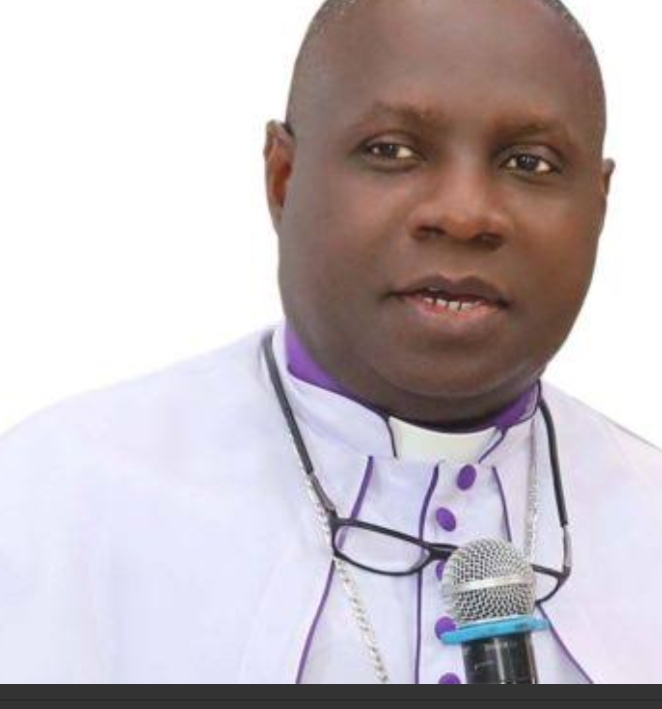
By Laide Akinboade, Abuja
The Christian Association of Nigeria (CAN) said that the increasing hardship faced by the majority of Nigerians due to recent hikes in fuel prices, school fees, and other essential expenses ignites worries.
In a statement issued by CAN President, Daniel Okoh, over the weekend, he urged the Federal Government to take immediate measures to alleviate the suffering in the country.
“While we acknowledge the complexities and difficult decisions taken by the government to manage the nation’s economy, there is an urgent need to prioritize measures that will alleviate, rather than exacerbate, the existing poverty level and hardships of Nigerians.
“The recent price hikes have placed an enormous burden on the already struggling masses, making it extremely difficult for them to afford the basic necessities of life,” the CAN President remarked.
He further advised the Federal Government to engage with critical stakeholders in meaningful dialogue to explore sustainable solutions to the current situation.
As part of the recommendations, Okoh stressed the importance of developing comprehensive economic policies that promote inclusive growth, job creation, and social well-being. He urged the government to focus on diversifying the economy, reducing dependency on volatile commodities, and promoting investments in sectors with the potential to create sustainable employment opportunities. These measures, according to him, would not only bolster economic resilience but also enhance the overall well-being of citizens.
“The fuel subsidy palliatives being considered by the government should go beyond cash transfers and should include the introduction of mass transport across states to reduce the cost of transportation. The multiplier effect of this will be profound,” Okoh emphasized.
Additionally, the CAN President called for measures to reduce the price of fuel, including the removal of unnecessary levies and taxes on imported petroleum products, stabilization of the foreign exchange market, and the restoration of local refineries to functional and effective use.
“While we understand that there is no gain without pain, the pain must not be unbearable,” he added.
Appealing to Nigerians to exercise patience with the government, Okoh urged everyone to work together to build an inclusive and resilient economy that offers opportunities for every Nigerian to thrive.





